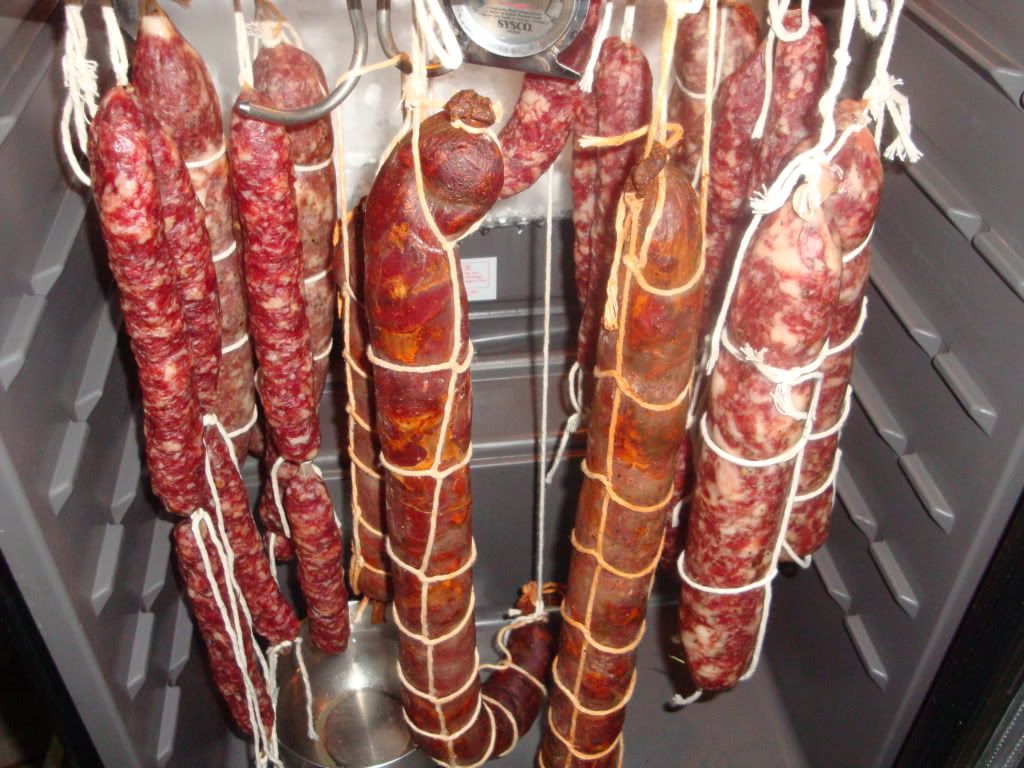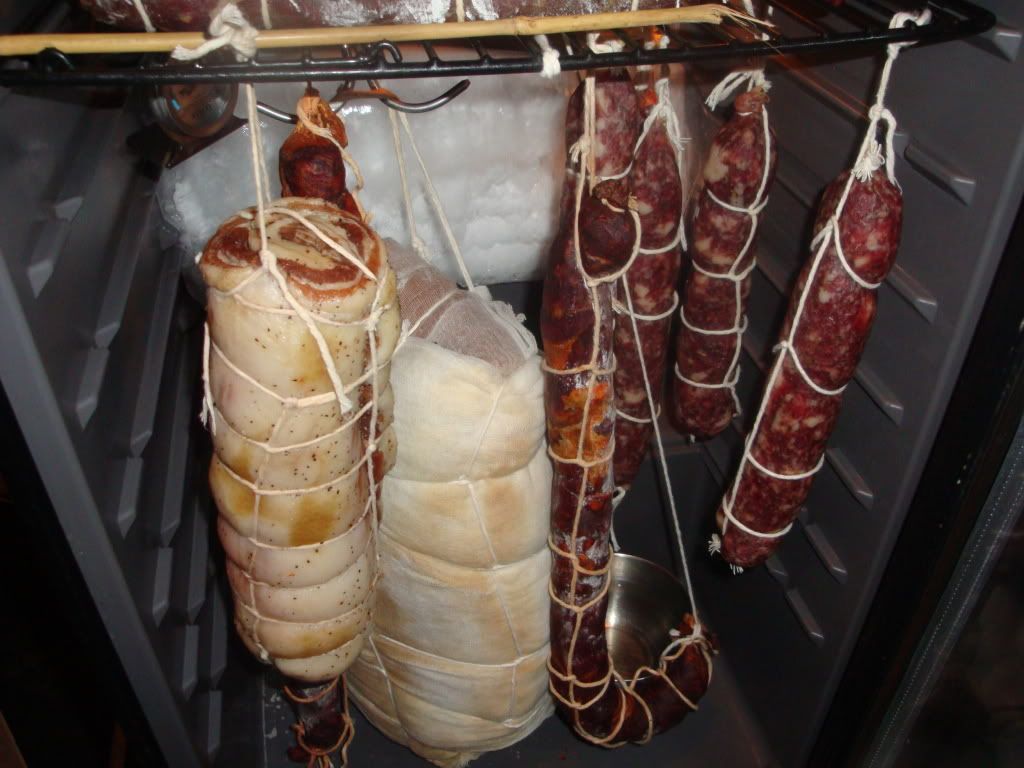steve jordan
New member

I NEED A BIGGER FRIDGE

It holds between 55 and 60. It came with a temperture gage.Originally posted by j biesinger:
Do you use a secondary temp control, or does it hold >40* on its own, since its a wine fridge?
do you circulate air?
is that ice along the back?
I just got a new freezer chest that my humidifer will fit in. Once it is up and running I will post some pictures. Needs a little tlc!Originally posted by j biesinger:
how's the humidity? I've seen small (personal) humidifiers that would work great in there but the humidity controllers are pretty expensive.

For now, I fan them twice a day and move them around ever couple a days. Seems to be working, just a pain!Originally posted by Dave from Denver:
Looks great Steve,
Do you do anything for air circulation? I would imagine with the fridge that crowded you would have some pretty significant localized humidity issues.
Originally posted by StevenH:
Ice on the condenser in a wine fridge is usually an indication that it's running at too cold a temp for too long, or the thermostat is broken and unable to manage the temperature. I had this problem with the cooling unit in my wine closet, and had to replace the thermostat. It sounds like you've been running it this way for a long time, but I'd expect that over time you might have problems with the condenser or motor.
